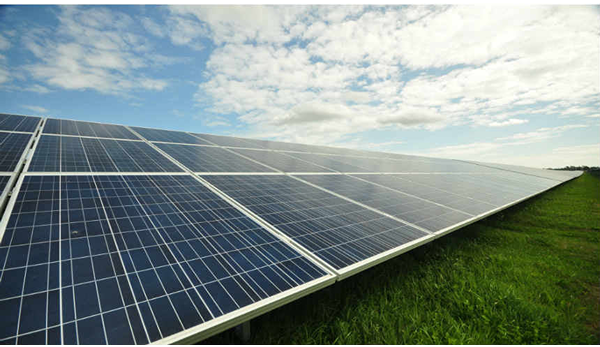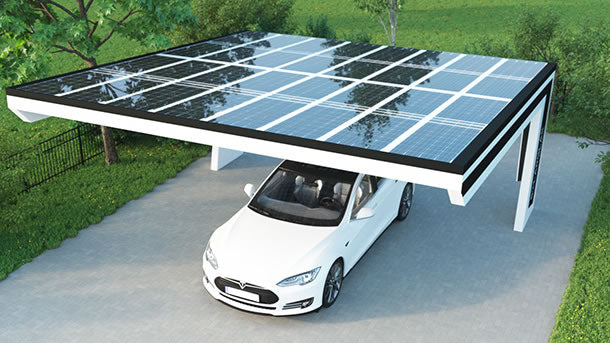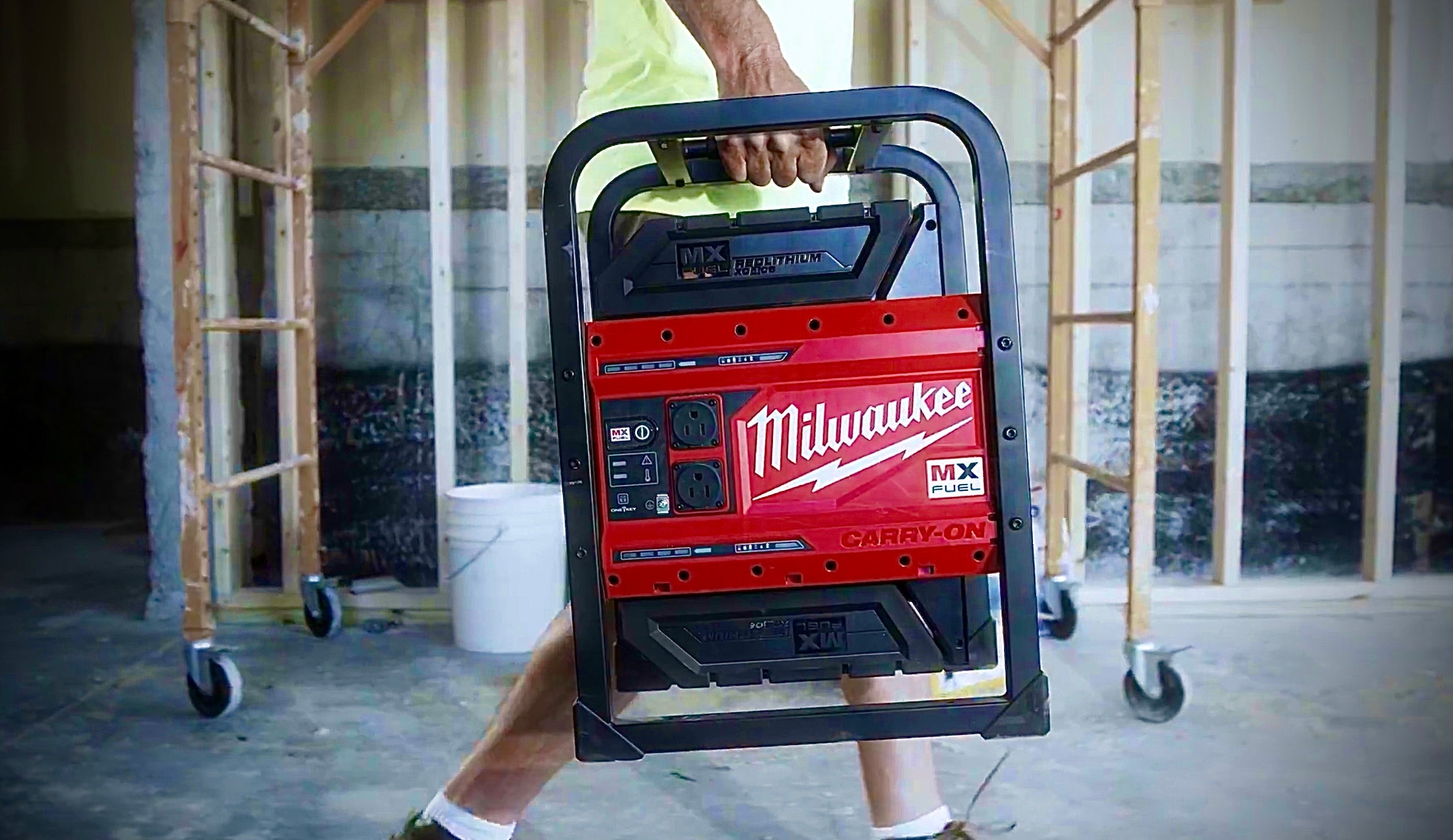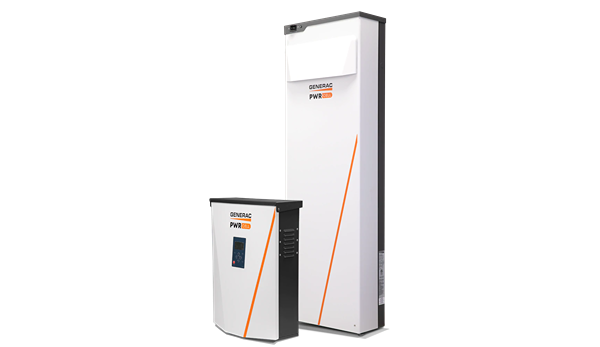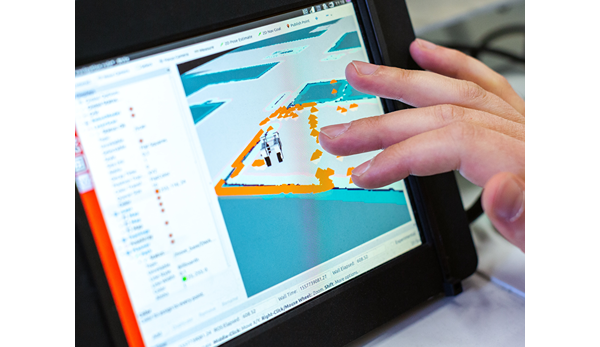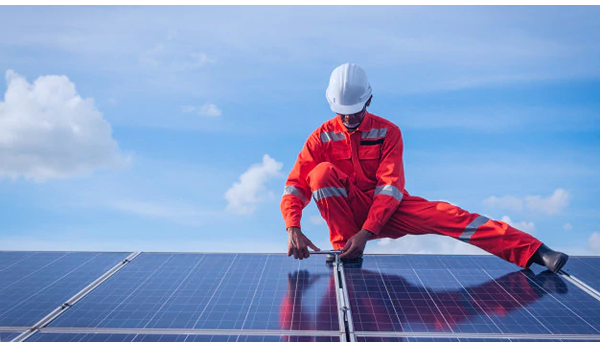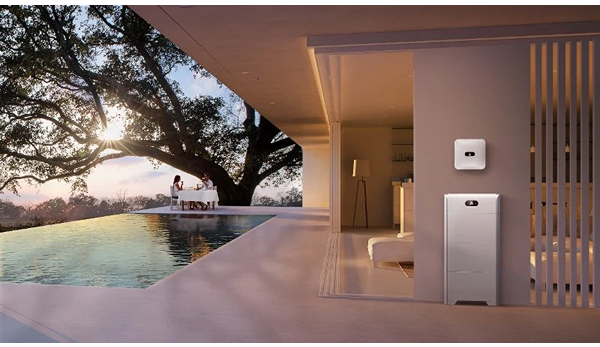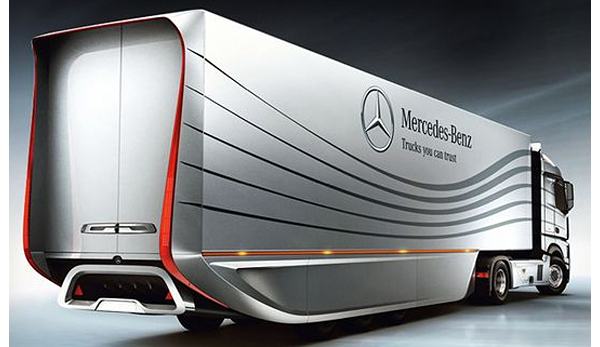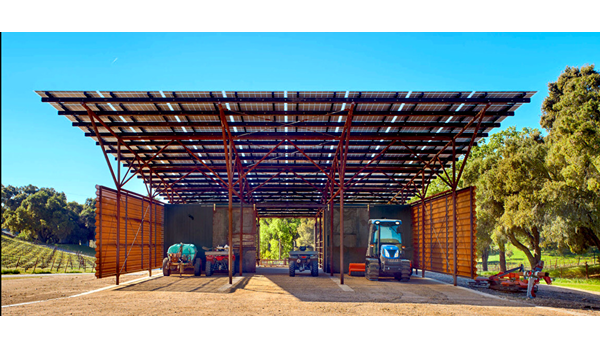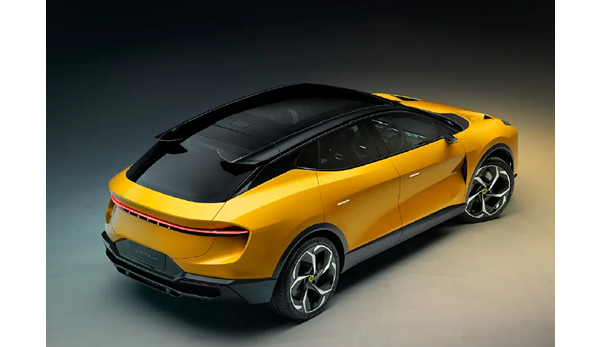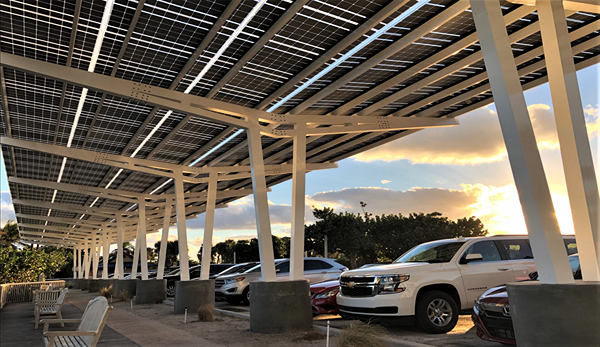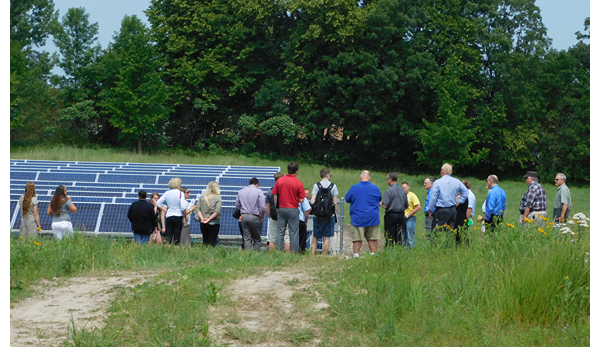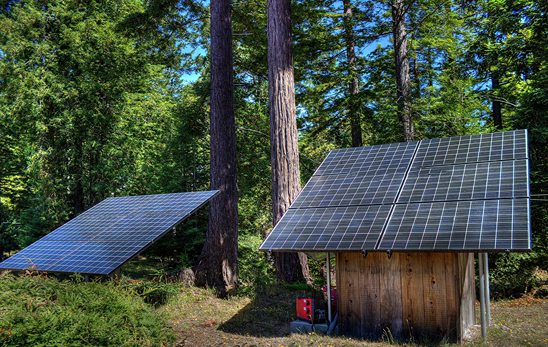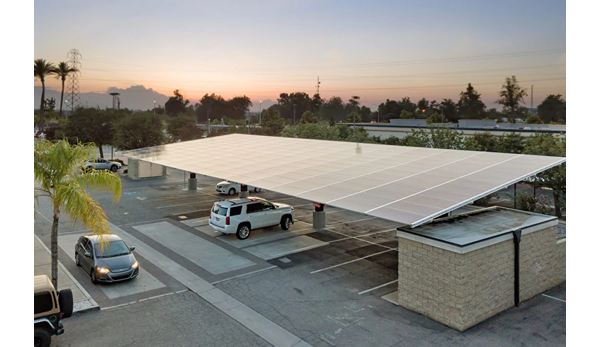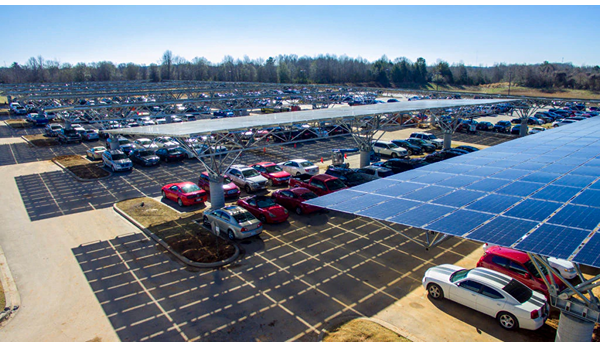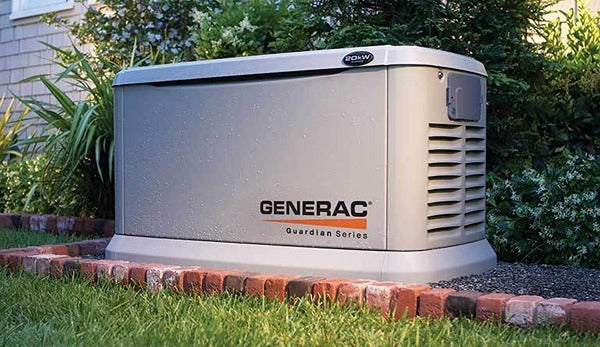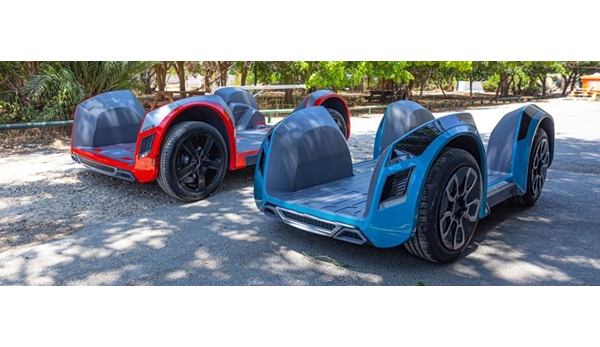
Designing and Financing Solar Car Ports - Energy Production for Homes, Farms and Businesses
Designing and Financing Solar Car Ports - Energy Production for Homes, Farms and Businesses
Solar energy is one of the most promising renewable energy sources available today. It offers numerous benefits, such as reducing our reliance on fossil fuels, lowering our carbon footprint, and cutting down on energy costs. One of the most popular ways of harnessing solar energy is through the use of solar carport systems. In this article, we will explore the importance of solar energy, the benefits of solar carport systems, and the steps involved in designing and financing a solar carport system for your home, farm or business.
Importance of Solar Energy and Its Potential for Carports
Solar energy is a clean and renewable energy source that has enormous potential to meet the growing energy needs of individuals, businesses, and governments. In addition, solar energy systems can be installed in various locations, including on rooftops, ground-mounted installations, and even on carports. Solar carports are an excellent option for individuals and businesses that need to maximize the use of available space, while also producing clean energy.
Benefits of Installing Solar Carport Systems for Homes, Farms, and Businesses
Installing a solar carport system has numerous benefits, such as reducing energy costs, increasing property values, and improving sustainability. Solar carports are also a great way to protect your vehicles from the elements while generating renewable energy. Additionally, solar carports can be used to charge electric vehicles (EVs), making them an excellent option for individuals and businesses that are looking to reduce their carbon footprint.
Designing a Solar Carport System
Choosing the Right Location for Your Solar Carport
One of the most important steps in designing a solar carport system is selecting the right location. The ideal location should have unobstructed access to sunlight throughout the day. The orientation of the solar panels and the angle of inclination should also be considered when selecting the location.
Assessing Your Energy Needs
The first step in designing a solar carport system is to assess your energy needs. This involves calculating how much electricity your household, farm or business uses on average each day. You can use your monthly energy bill to determine your average energy usage.
Determine the amount of energy you consume on a regular basis and identify the sources of energy consumption. For residential installations, energy consumption is typically divided into two categories: residential consumption and EV consumption.
For residential consumption, ook at your electricity usage throughout the year. This will give you a better idea of how much electricity you need to produce on a daily basis. Keep in mind that your energy needs may change depending on the season, so you should consider your highest usage months when designing your system.
If you have an electric vehicle (EV), you'll also need to factor in the amount of energy your vehicle consumes. EVs can use a significant amount of electricity, so it's important to take this into account when designing your solar carport system.
Selecting the Right Solar Panels, Solar Storage and Equipment
Once you have assessed your energy needs, the next step is to select the right solar panels, solar storage and equipment. There are several types of solar panels available, and the most suitable option will depend on factors such as efficiency, durability, and cost.
It's also important to choose a solar storage solution that can store excess energy generated during the day for use during the night or during periods of low sunlight. This can include batteries or other types of storage systems. The type of storage system you choose will depend on your specific energy needs and budget.
High-efficiency panels are more expensive, but they can produce more electricity in less space. If you have limited space for your solar carport system, high-efficiency panels may be the right choice for you.
Designing a System that Fits Your Budget
Designing a solar carport system can be expensive, so it's important to design a system that fits your budget. This involves choosing the right equipment and designing a system that will produce enough electricity to meet your needs, without exceeding your budget.
It's important to balance cost with performance and quality when selecting solar panels, solar storage and equipment. There are several financing options available for solar carport systems, including leases, loans, and power purchase agreements.
Maximizing the Efficiency of Your Solar Carport System
Once your solar carport system is installed, it's important to maximize its efficiency. This involves regularly monitoring your system and making adjustments as needed. You'll want to monitor your energy production and usage to ensure that your system is producing enough energy to meet your needs.
Maximizing the efficiency of your solar carport system is key to ensuring optimal performance and reducing energy costs. This can be achieved through regular maintenance, including cleaning the solar panels and replacing faulty equipment.
By understanding your energy needs, selecting the right equipment, and designing a system that fits your budget, you can create a sustainable energy solution that will benefit you for years to come.
Financing Your Solar Carport System
Exploring Financing Options for Solar Carports - Residences, Farms, Businesses
As more people become interested in renewable energy, the demand for solar carport systems continues to grow. However, the cost of installation can be a barrier for many individuals and businesses. That's where financing options come in. Let’s briefly explore the different financing options available for solar carports and how to choose the right one for your needs.
There are several financing options available, including federal and state incentives and rebates, leases, loans, and power purchase agreements. It's important to research these options and choose the one that best fits your needs and budget.
Exploring Financing Options for Solar Carports
Choosing the right financing option for your needs is essential when planning a solar carport system. There are several financing options available for residences, farms, and businesses. One common option is leasing, where a third party owns the system and the customer pays a monthly fee for the use of the system. Another option is taking out a loan, either through a traditional lender or a specialized solar financing company.
Federal and state incentives and rebates can help offset the initial cost of the system, making it more accessible for customers. For example, the federal solar investment tax credit (ITC) allows homeowners and businesses to deduct a percentage of the cost of installing a solar energy system from their taxes. State and local governments may also offer incentives such as rebates or property tax exemptions.
When it comes to financing your solar carport system, there are several options to consider:
Cash Purchase: If you have the funds available, purchasing your solar carport outright can provide immediate savings on your energy bill and a quicker ROI.
Loan: A solar loan allows you to finance your system through a lender and make payments over time. The interest rates and terms will vary depending on the lender and your credit score.
Lease: A solar lease allows you to rent your solar carport system for a fixed monthly payment. The leasing company owns the system, and you benefit from the energy savings. This option is best for those who don't want to own the system or who don't have the funds for an upfront purchase.
Understanding Federal and State Incentives and Rebates
There are several federal and state incentives and rebates available to help offset the cost of installing a solar carport system. Some of the most popular incentives include:
Federal Tax Credits: The federal government offers a tax credit of up to 26% of the total cost of your solar carport system. This credit is available to both residential and commercial installations.
State Rebates: Many states offer rebates for installing solar carports. The rebates vary by state, so it's important to check with your local government to see what incentives are available in your area.
Net Metering: Net metering allows you to sell excess energy back to the grid, which can offset the cost of your energy bill. This program is available in many states and can provide significant savings over time.
Evaluating the ROI of a Solar Carport System
When evaluating the return on investment (ROI) of a solar carport system, it is important to consider the long-term financial benefits. While the initial cost may be higher than traditional energy sources, the ongoing energy savings and potential revenue from excess energy produced by the system can make up for the cost over time.
One of the most important factors to consider when financing your solar carport system is the return on investment (ROI). The ROI is a measure of how much money you will save over time compared to the initial cost of the system. Factors that can impact your ROI include:
Energy Consumption: The more energy you consume, the more you can save with a solar carport system. It's important to assess your energy needs and determine if a solar carport system is the right choice for you.
System Cost: The cost of your solar carport system will impact your ROI. It's important to choose a system that fits within your budget but also provides the maximum energy savings.
Incentives and Rebates: Incentives and rebates can significantly impact your ROI, so it's important to take advantage of all available programs.
Choosing the Right Financing Option for Your Needs
When choosing the right financing option for your solar carport system, it's important to consider your financial situation, energy needs, and long-term goals. Some factors to consider include:
Upfront Costs: If you have the funds available, a cash purchase may be the best option as it provides immediate savings and a quicker ROI.
Monthly Payments: If you prefer to make monthly payments, a loan or lease may be a better option.
Ownership: If you want to own the system and benefit from the energy savings, a cash purchase or loan may be the best option.
Financing your solar carport system can be a great way to reduce your energy bill and contribute to a more sustainable future. By exploring the different financing options, understanding incentives and rebates, and evaluating your ROI, you can choose the right option for your
Installation and Maintenance
Once you've chosen the right solar carport system and financing option, it's time to move onto the installation process. It's important to find the right contractor for the job - someone who has experience in installing solar carport systems and is licensed to do so.
During the installation process, the contractor will first evaluate the location of your solar carport and ensure that it is properly positioned for maximum sunlight exposure. They will then begin the process of installing the solar panels, solar storage, and other necessary equipment.
After your solar carport system is installed, it's important to maintain it properly. Regular maintenance will ensure that your system is functioning efficiently and effectively. Common maintenance tasks include cleaning the solar panels to remove any dirt or debris, checking the wiring and connections for any signs of wear or damage, and inspecting the system for any potential issues.
In the event that you encounter any issues with your solar carport system, it's important to troubleshoot the problem as soon as possible. Common issues include wiring problems, broken solar panels, inverter failure and malfunctioning equipment. Most issues can be resolved quickly and easily with the help of a professional contractor.
Using Solar Energy to Power Your Home, Farm, or Business
One of the biggest benefits of installing a solar carport system is the ability to use solar energy to power your home, farm, or business. Net metering is an arrangement that allows you to send any excess energy your solar panels produce back to the grid in exchange for credits on your utility bill. This means that during times when your solar panels are producing more energy than you need, you can earn credits that you can use to offset the cost of energy you use when your solar panels are not producing as much.
By using solar energy to power your home, farm, or business, you'll be able to reduce or even eliminate your reliance on fossil fuels and contribute to a more sustainable future. Not only is this good for the environment, but it can also help you save money on your energy bills over time.
Case Studies: Real World Examples of Successful Solar Carport Systems
To truly understand the benefits of solar carport systems, it can be helpful to examine real-world examples of successful installations. There are many real-world examples of successful solar carport systems, including residential, farm, and commercial applications. Here are a few case studies to consider:
Residential solar carport system case study: A family in California wanted to reduce their carbon footprint and cut their energy costs. They decided to install a solar carport system that would power their home and charge their electric vehicle. The solar carport was designed to fit their budget and energy needs, and they were able to take advantage of state and federal incentives to reduce the upfront costs. Since the installation, they have significantly reduced their energy bills and have not had to rely on traditional energy sources.
Another residential case study comes from a family in California who installed a solar carport system in their driveway. The system has allowed them to power their home entirely with solar energy, reducing their reliance on the grid and saving them money on their energy bills.
Farm solar carport system case study: A farm in Arizona wanted to reduce their energy costs and take advantage of the abundance of sunlight in the area. They installed a solar carport system that would power their irrigation systems, equipment, and the farm's facilities. The solar carport system was designed to fit their unique energy needs and budget, and they were able to take advantage of state and federal incentives to reduce the upfront costs. Since the installation, they have been able to significantly reduce their energy bills and have increased their energy independence.
Commercial solar carport system case study: A company in New York wanted to reduce their carbon footprint and cut their energy costs. They decided to install a solar carport system that would power their offices, charging stations for electric vehicles, and their warehouse facilities. The solar carport system was designed to fit their unique energy needs and budget, and they were able to take advantage of state and federal incentives to reduce the upfront costs. Since the installation, they have been able to significantly reduce their energy bills and have set an example for other businesses in the area to follow.
Another commercial solar carport system was installed at a shopping mall in Arizona. The system not only provides energy for the mall but also provides shaded parking and EV charging for customers, making it a win-win for both the environment and the community.
Comparing Solar Carport Systems to Other Renewable Energy Options
Comparing solar carport systems to other renewable energy options such as rooftop solar panels or small-scale wind turbines can help customers evaluate which option is best suited for their needs. While solar carport systems may have higher upfront costs than some other options, they offer benefits such as providing shade for vehicles and being able to produce energy during peak hours. Here are a few options to consider:
Benefits of solar carports compared to rooftop solar panels: Solar carport systems offer the additional benefit of providing shade for your vehicles while generating energy. Additionally, they can be installed in areas that are not suitable for rooftop solar panels, such as parking lots or open fields.
Comparing solar carport systems to small scale wind turbines: Small-scale wind turbines can generate energy, but they require a specific type of location with consistent wind patterns. Wind turbines can be a great source of energy in certain areas, they may not be the best option for everyone. Factors such as wind speed, noise pollution, and space requirements can make wind turbines less practical for some. Solar carports, on the other hand, can be installed in a wider variety of locations and are not dependent on wind patterns.
Evaluating the cost-effectiveness of different renewable energy options: It's important to evaluate the cost-effectiveness of different renewable energy options based on your unique energy needs and budget. While solar carports can be a great fit for some, others may benefit more from rooftop solar panels or small-scale wind turbines.
Future of Solar Energy and Carport Systems
Demand for renewable energy will grow as technology continues to improve. We can expect to see many advancements in solar energy and carport systems. As solar energy becomes more affordable and accessible, we can expect to see a continued increase in the use of solar carport systems. In addition, as more electric vehicles hit the market, we can expect to see an increased demand for charging stations, which can be powered by solar carport
The future of solar energy and carport systems is bright. With advancements in technology and increased awareness of the importance of renewable energy, solar carport systems are becoming more popular and cost-effective. Some emerging solar technologies to keep an eye on include Perovskite solar cells, Bifacial solar panels, and building-integrated photovoltaics.
Some emerging solar technologies that show promise for carport systems include:
Solar skin technology, which allows solar panels to blend in with the surrounding environment.
Solar shingles, which can replace traditional roofing materials and provide both shade and electricity.
Smart inverters, which can optimize the performance of solar panels and improve energy efficiency.
Trends in solar energy and their impact on carport systems
Trends include the growing popularity of solar storage systems, which can store excess energy generated by solar carport systems for use later, and the increased use of Microgrids, which allow solar carport systems to operate independently of the traditional power grid.
The role of solar energy in reducing carbon emissions is critical. By transitioning to renewable energy sources such as solar carport systems, we can significantly reduce our reliance on fossil fuels and contribute to a more sustainable energy future.
Summary
Using solar energy to power homes, farms, and businesses can have numerous benefits. Understanding net metering, which allows customers to receive credits for excess energy produced by the system, can further maximize the financial benefits of a solar carport system. Additionally, transitioning to renewable energy sources such as solar can help reduce reliance on fossil fuels and contribute to a more sustainable future.
Solar carport systems offer numerous benefits for homes, farms, and businesses looking to transition to renewable energy sources. By understanding the design and financing options available, maximizing the efficiency of the system, and using net metering to its full potential, customers can experience significant financial and environmental benefits. Real-world case studies and comparisons to other renewable energy options can help customers evaluate which option is best suited for their needs. The future of solar energy and carport systems looks promising, and transitioning to renewable energy sources is critical in combating climate change and ensuring a sustainable future.


